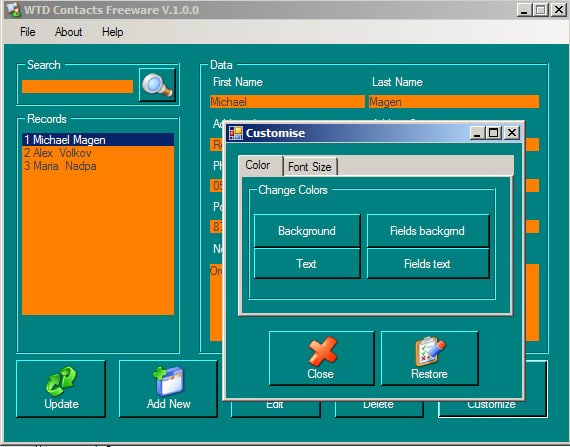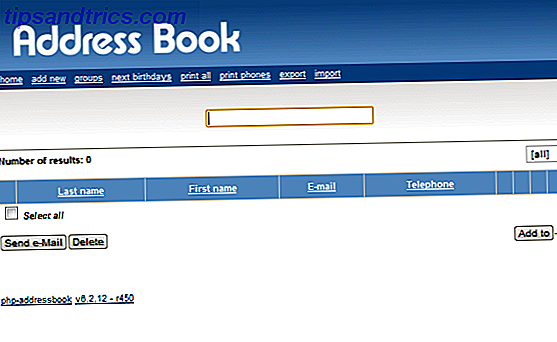
User Replicator stores this in the blob without any conversion.Ī string attribute, but is included only if the attribute value begins with "tel:". User Replicator converts this type to UTF-8 before storing it in the AbUserEntry table.Ī binary attribute. The following types of Address Book Server attributes are recognized by User Replicator, indicated by the low byte of the value in the Flags column. The value in the Flags column is used to define the type of attribute. The Name column corresponds to the Active Directory attribute name that User Replicator should put in the AbUserEntry table for each contact. Also, keeping the ID values under 256 saves space in the output files written by the Address Book Server. The numbers in the ID column must be unique and should never be reused. Address Book Server attributes are dynamic and are retrieved from the AbAttribute table, which is initially written by the Address Book Server when the Address Book Server is activated.Īddress Book Server activation populates the AbAttribute table with the values shown in the following table. If the AbAttribute table is empty, User Replicator skips its AbUserEntry table processing logic. The table is created during database setup. The AbAttribute table contains three columns, ID, Name, Flags, and Enable. User Replicator determines which Active Directory attributes to write by reading a configuration table located in the same SQL Server-based instance as the AbUserEntry table. UserData is an image column which contains all of the previously mentioned Active Directory Domain Services attributes for that contact.

UserGuid is the index column and contains the 16-byte GUID of the Active Directory object. The schema for the AbUserEntry table uses two columns, UserGuid and UserData. User Replicator writes the Active Directory Domain Services attributes for each user, contact, and group into the AbUserEntry table in the database and the Address Book Server syncs the user data from the database into files in the Address Book Server file store and into the Address Book database RTCab.
#Ls address book server 21054 update#
The Address Book Server uses data provided by User Replicator to update the information that it initially obtains from the global address list (GAL).

You should review your normalization rules to ensure that either they are not looking for these non-mandatory characters, or that the rule can fail gracefully and continue in the event that the character is not present where the rule anticipates it will be. Because the white space and non-mandatory characters are removed prior to the normalization rules, if your regex expression is specifically looking for a dash or other character that was removed, your normalization rule might fail.

The normalization rules that were used in previous versions may not work properly without some adjustments. When a phone number is used from the address book and the normalization rule is applied, clients, such as Lync Phone Edition and Lync Mobile, can use these normalized numbers. To use phone numbers that are unstructured or inconsistently formatted, Lync Server relies on the Address Book Server to preprocess phone numbers before they are handed off to the normalization rules. Lync Server requires standardized RFC 3966/E.164 phone numbers. Address Book Server Phone Number Normalization


 0 kommentar(er)
0 kommentar(er)
